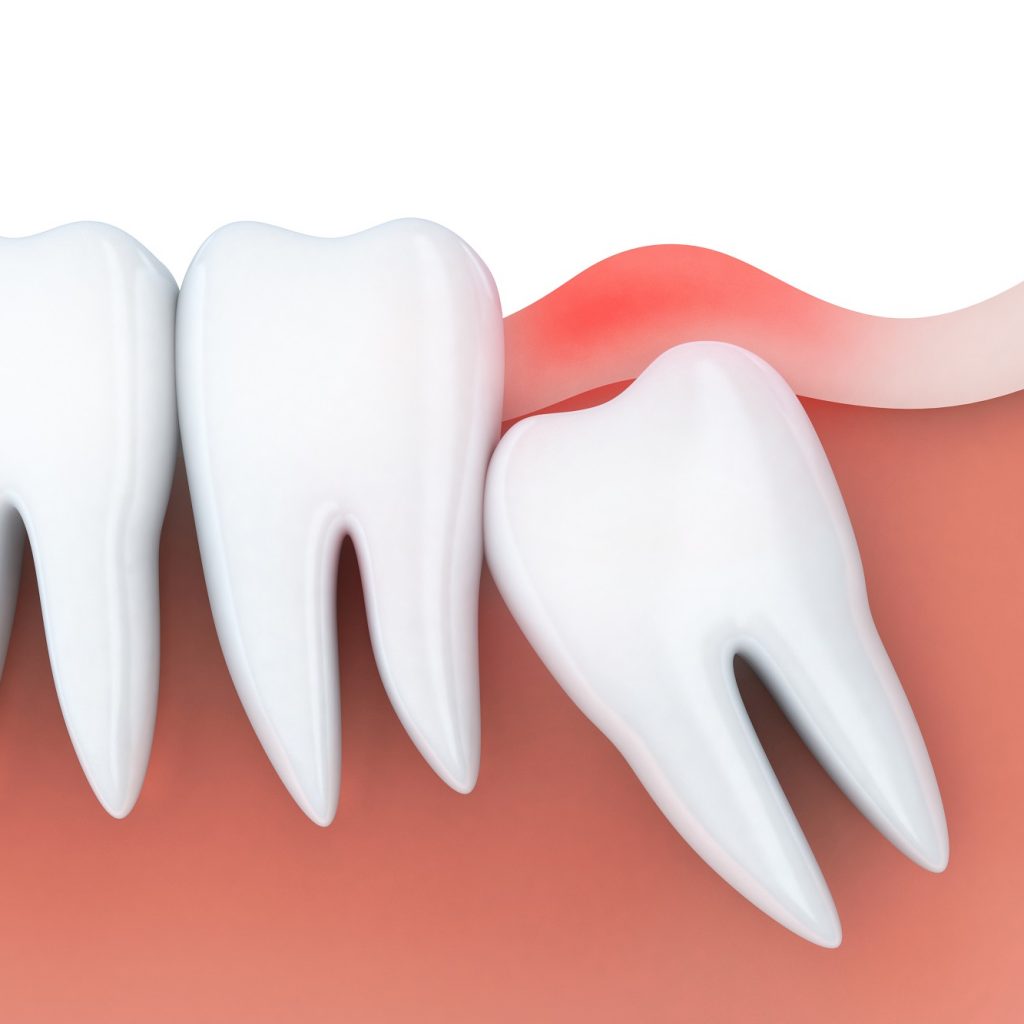
If your general dentist mentions it’s time to remove your wisdom teeth. In most cases, they may have to refer to an oral surgeon who will perform the procedure in their office. The recovery process is usually three days you will be back on your feet feeling normal again.
Why should my wisdom teeth be removed?
Wisdom teeth are a third set of molars located in the back of your mouth. Wisdom teeth usually grow from the ages of 17-25 and can be visible on X-rays. Most patients have the removed for one of the following reasons:
- They are impacted – Do to the location of your wisdom teeth being in the recesses of your mouth, they usually will not grow in normal or straight. In some instances they grow into your jawbone or gums causing an immense amount of irritation and or pain.
- Come in at an angle – This may lead to them press up against other teeth.
- Not enough room – Your jaw has no more room for the extra set of molars.
- Cavities or gum disease – A Lot of times you will not be able to reach the wisdom teeth with a toothbrush or floss.
Preparation:
You will meet with your dentist or oral surgeon to talk about the procedure, at this appointment make sure to:
- Talk about existing health issues
- Drinking, smoking or drug use
- Ask any questions that you might have about the surgery
- Anesthesia – options
- Allocate adequate time off from work or school to accommodate for ample rest and recovery. Setup child or pet care and a ride home if needed.
During Surgery:
Your surgery should take 45-minutes, you will receive one of these types of anesthesia to lessen any pain during your procedure. ‘
- Local – Your dentist will numb your mouth with a shot of local anesthetic such as novocaine or lidocaine, You may also be administered nitrous oxide to relax you prior to your surgery or to make you doze off. You will feel alert again shortly afterward.
- IV – The oral surgeon will numb your mouth and also give you drugs through a vein in your arm to make you feel drowsy. You might sleep through the entire process.
Your dentist may have to cut your gums or bone to remove your teeth. In this case they will also have to stitch the wounds to make sure they heal quickly. These stitches usually dissolve after a couple of days. They also may apply gauze pads in your mouth to stop the bleeding.
Post Surgery:
Everyone’s chemistry will react differently to the effects of anesthesia. If you have had local anaesthesia in some cases you will not be permitted to drive or go back to work or presume normal activities. Most people have no little or no pain immediately after surgery. Swelling and mild discomfort should only be expected for a few days afterwards. Your mouth may need a few weeks to completely heal.
Do’s:
- Ice Packs
- Soft foods
- Plenty of fluids
- Resume brushing after a couple days
- Take all medications for infection, pain and swelling
- Call dentist if swelling, discomfort, or pain doesn’t improve
Don’ts:
- No smoking
- Hard or crunchy food
- No gargling or swishing
- Do not drink through a straw
